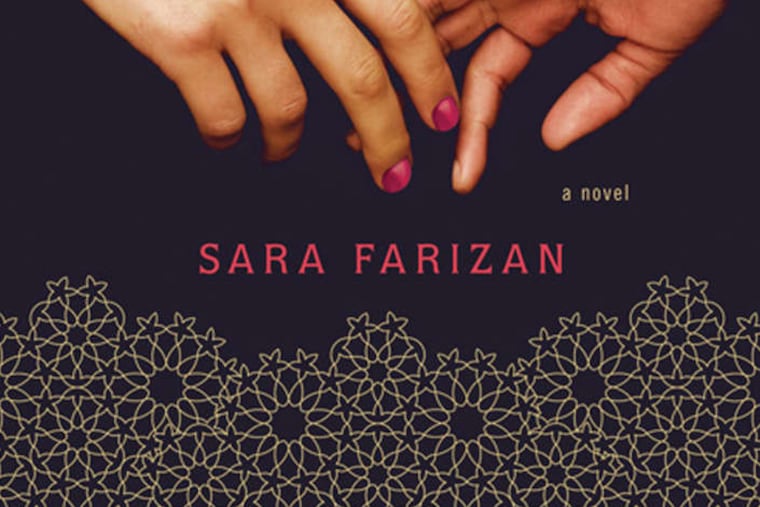Tough topics, powerful tales
Fat Angie isn't doing so well. Her high-powered lawyer mom doesn't pay her any attention (unless it's to dispense weight-loss advice, unkindly), her adopted brother has turned vicious, and her beloved older sister, who gave up a basketball scholarship to

Fat Angie
By e.E. Charlton-Trujillo
Candlewick. 272 pp. $16.99
nolead ends Fat Angie isn't doing so well. Her high-powered lawyer mom doesn't pay her any attention (unless it's to dispense weight-loss advice, unkindly), her adopted brother has turned vicious, and her beloved older sister, who gave up a basketball scholarship to fight in Iraq, is missing in action. Plus she's fat, like as an identity, ridiculed and bullied as Fat Angie by everyone at school. But one day in gym class, the new girl strides in. A confident tough girl with a purple heart tattoo, she talks like a wisecracking Joss Whedon teen and just happens to be beautiful. Her name is KC Romance, and unlike everybody else, she likes Angie. A lot. Can you stand it?
There is something absolutely cinematic about this book; in fact, it has all the bright-colored appeal of a cult favorite, subversive and funny and cool. Charlton-Trujillo has a real gift for language, and every page pops with arresting images, such as the "punk-Goth-Amish kid in the midst of extreme Rumspringa."
Angie deals with some very heavy situations - war, death, first love, addiction, and alienation - but her perspective and attitude are so fresh and novel that the book transcends "issues" status and registers as a bona fide original. Highly recommended.
nolead begins A Trick of the Light
nolead ends nolead begins By Lois Metzger
Balzer + Bray. 208 pp. $17.99
nolead ends In A Trick of the Light, veteran YA author Lois Metzger gives us a unique look at mental illness, from the perspective of the insidious voice inside teenage Mike Welles' head. It's an unusual and powerful method of illustrating the warped thinking that characterizes an eating disorder, and shows us how much it can feel like an entity separate from the sufferer himself.
Things have been feeling out of control in Mike's life - the speech problem he had as a kid is creeping back, and his parents are acting distant and unhappy. Soon his father has moved out and his mother can't get out of bed. It's during this time of stress that the internal voice makes its first appearance. Seeming to offer comfort, the ugly presence tells Mike to push his friends away, isolate himself, and begin hurting himself with food (or lack of it).
Metzger has set this story in the fictional, but true-to-life, neighborhood of Belle Heights, Queens, where many of her other novels have taken place. It's more suburban than "the city" and Mike finds it kind of bland, but there's plenty of beauty there if only he can learn to see it. This unusual and moving novel addresses complicated ideas, and is ultimately a hopeful tale about coming back to life.
nolead begins If You Could Be Mine
nolead ends nolead begins By Sara Farizan
Algonquin. 256 pp. $16.99
nolead ends With her wrenching first novel, due out on Aug. 20, Sara Farizan, a young Iranian American writer, shows us an intimate experience of being gay in a country that considers gayness a crime punishable by death. This is the story of Sahar and Nasrin, two ordinary teenage girls who grew up together in Tehran, Iran's bright and noisy capital city. The thing that makes them feel somewhat less than ordinary is that they've been in love with each other for as long as they can remember.
Sahar tells us the story from her perspective, which for much of the novel seems harder than Nasrin's; Sahar is the awkward one, in awe of Nasrin's beauty, and her household is poorer and sadder since her mother died. But eventually we're made to see that neither girl has an easy road ahead of her.
Nasrin's beauty and privilege are themselves a kind of trap, making it easy for her parents to arrange to marry her off to an eligible doctor, and Sahar's studies suffer as she tries desperately to figure out a way that they can be together.
As tough as their struggle is, the backdrop to their story is just as often lovely, with its images of grand houses with marble floors and small restaurants serving fragrant fesenjoon, a pomegranate stew with walnuts and chicken. The novel is a kind of reportage, geared toward an American audience that knows little about Iranian society, though it's more intimate and useful than any news item, however evenhanded, could ever be.
Perhaps even more powerfully, it teases out parallels between Iran and America, where many young people deal with inherited shame and painful secrets. Farizan has achieved something difficult here, giving us a story as eye-opening as it is familiar.
Powerful stuff.